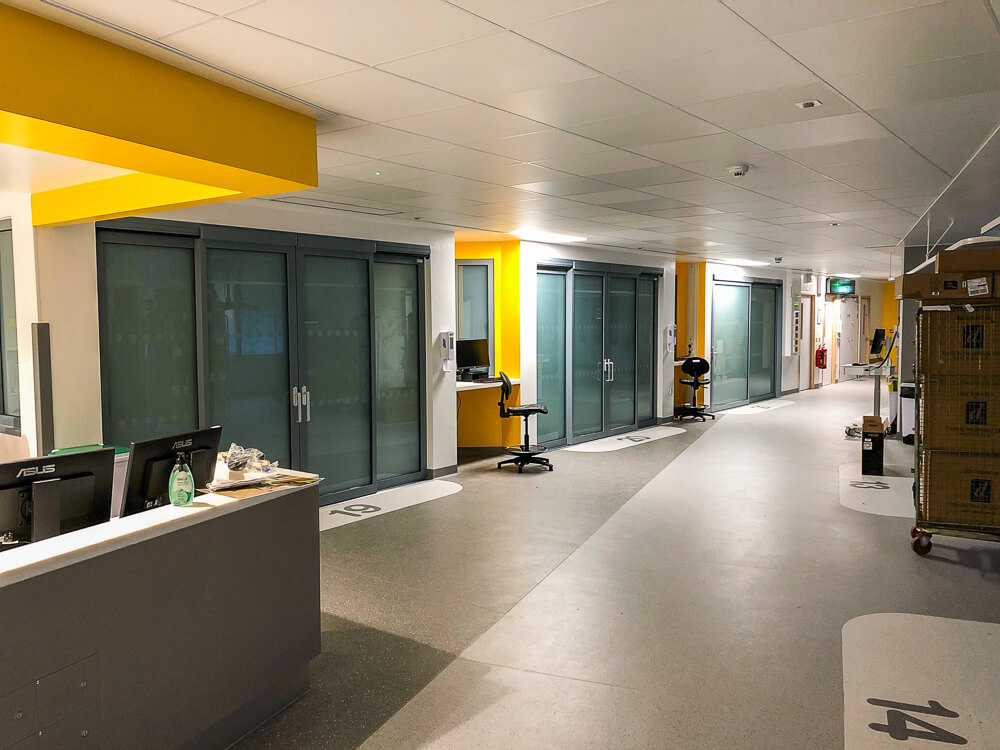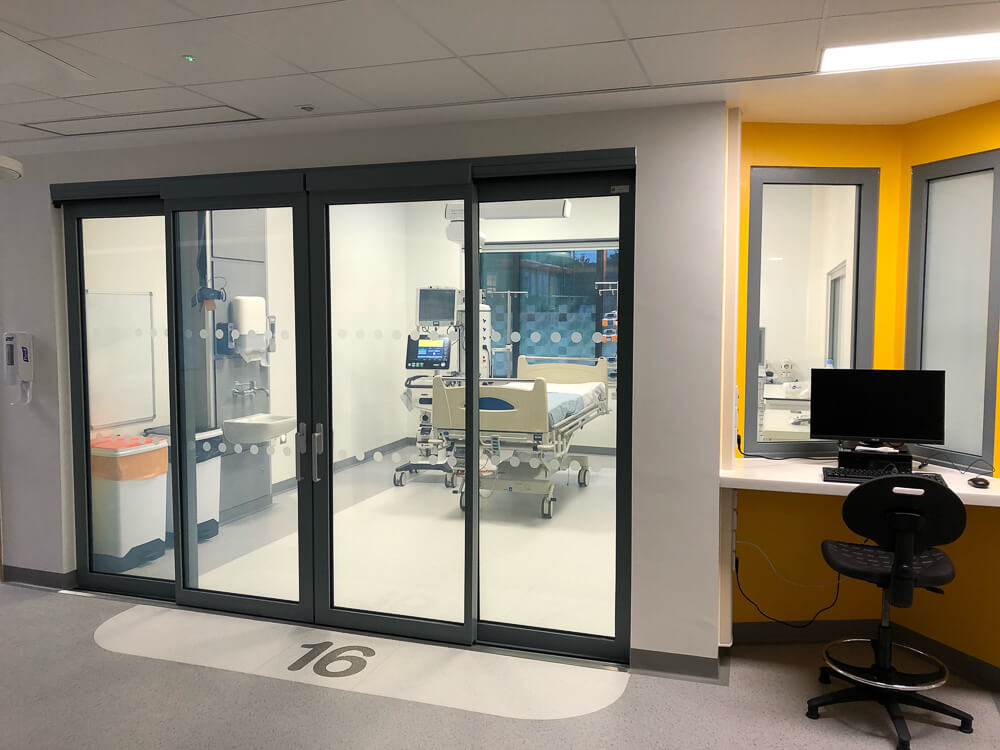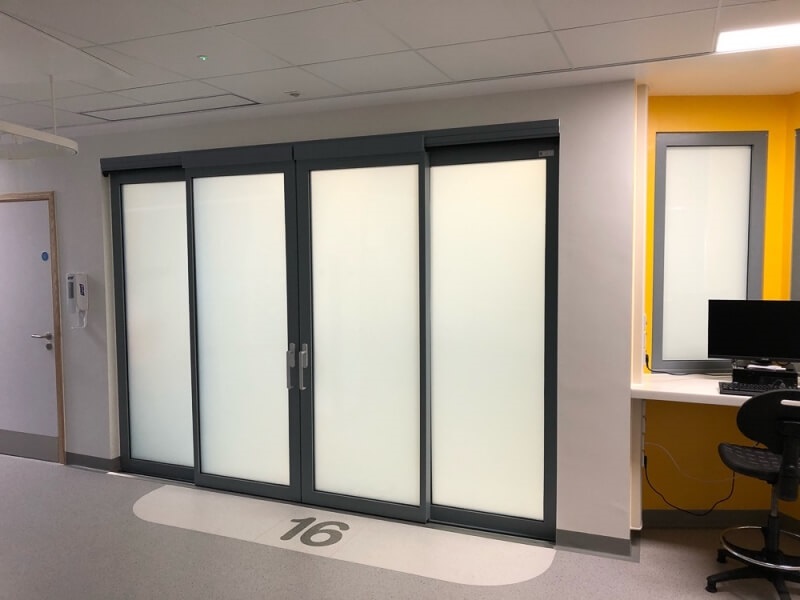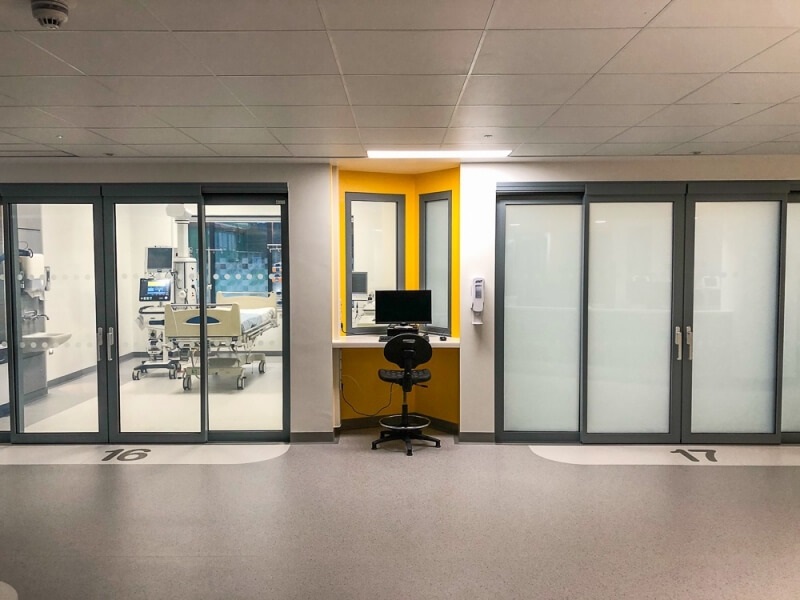Aston Architectural Aluminium and Teknoglass collaborate to deliver a £22m innovative glazed aluminium solution for state-of-the-art general intensive care unit at Southampton Hospital

Aston and Teknoglass worked with doctors, nurses and the project team to design and install a sliding door and fixed-screen solution at University Hospital Southampton’s new 48-bed intensive care unit (ICU). Key challenge was to deliver very quickly a glazed aluminium solution that met multiple needs. These included enabling the ICU to be managed effectively with optimal staff, to operate safely in event of fire and to maintain a rigorous infection control environment. Following completion in October 2020, the ICU was put into action immediately as a key component in the fight against the Covid 19 pandemic.
Critical success factors included co-developing an innovative solution with key stakeholders, delivering a high quality bespoke product on time and collaborating successfully to keep the project on track and on budget:
Co-developed solution delivers the best result

Face-to-face collaboration with key stakeholders throughout both the design and installation phases enabled Aston to contribute proactively to the initial design and to then help advise, test and confirm any required modifications during the installation process. We focused on meeting end user needs as far as possible while integrating different technologies and balancing what could be achieved by our aluminium system and in practice on site. The need for this high level of responsiveness and flexibility is typical of our work on such complex large-scale projects. The solution also addressed fire and acoustic requirements with Level D presenting a three-storey space all fitted with fixed fire and acoustic glazed units that maintain the fire integrity of the atrium. Success was plain to see with the sliding door and fixed-panel system being put into immediate use after completion.
High quality bespoke product for good looks and long-lasting high performance

Aston’s in-house manufacturing & quality processes and experienced team enabled us to deliver a bespoke solution that meets performance criteria and enables the hospital to operate safely and maintain an effective cleaning and infection control regime. The door system comprises a fixed glazed section and a large double glazed sliding door. All doors and fixed panels are controlled both centrally from the main ICU and separately by a radio-controlled wall switch located inside each room. In normal use the glass is in the clear state and when required the glass can be frosted, isolating the room. This enables a single practitioner to monitor 2 or 3 patients in adjacent rooms. Further, enhanced safety outcomes were delivered within agreed project timelines such as a battery back-up system which will maintain the switchable glass operation for over 6 hours in a building emergency. Should a fire alarm be activated all switches are set to the clear state ensuring patient visibility for emergency evacuation. A key innovation is that the door track is sunk into the floor and all surfaces are flush, which enables better hygiene practice, hermetically-sealed rooms and prevents movement of contagious pathogens from one area to another. Control of pathogen movement is further aided with antibacterial properties in the door handles.
Outstanding collaboration and project management delivers success on time and on budget

Aston and Teknoglass worked closely with all members of the project and client team to ensure issues were identified and addressed early so the project stayed on track and delivered the result the client wanted. Our experience of managing complex large-scale projects within tight timescales proved invaluable and we met all required deadlines.
Following the successful introduction of Aston and Teknoglass’s bespoke glazed aluminium solution in the ICU, there are now plans to roll out the same system to Southampton Hospital’s newly-built operating theatre recovery rooms and the paediatric intensive care unit. There is also interest from other NHS Trusts for this ground-breaking solution.